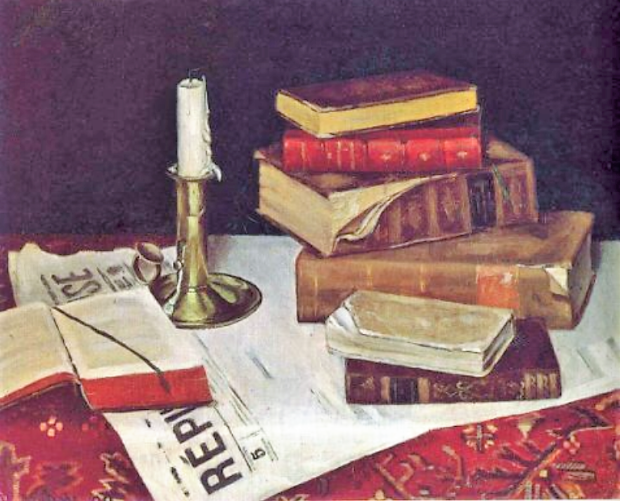In his book Creativity, Mihaly Csikszentmihalyi set out to discover what geniuses have in common. He interviewed and spent time with hundreds of people who were excellent in their creative fields ranging from music and writing through science and engineering. Was sustained creativity about lying around drunk and waiting for inspiration or was it more about showing up at the desk every day like office workers?
The answer, he discovered, was very much the latter. Nobel and Pulitzer prize-winners had in common, more often than not, relatively sober, hard-working life styles and – believe it or not – steady home lives and long marriages too.
Inspiration is much more likely to find you when you’re at your desk, in the act of writing. (Picasso said that when inspiration called, she would find him in his studio.) That is when you are best equipped to harness and develop those thoughts.

Csikszentmihalyi points out too that being part of a tradition helps the standard of your work. Learn from the writing giants who have gone before. Read their work relentlessly and go on all the courses you can. Every course turns up something useful, something that hangs at the back of the mind for later, and you can meet other writers, have a sense of being part of an important community and make contacts for the future.
This does not mean that you will be induced to write in the same way as other people. The opposite is true. Creative people are all magpies, picking up tips and tricks wherever we go, for our own ends. You can see it in the way that Haydn (known as Papa because he lived so long and shared his skills with so many through teaching) taught both Mozart and Beethoven. They both took his knowledge into their own lives and used it in stunning, different ways. The band Oasis stood on the shoulders of the Beatles and didn’t invent the phrase ‘on the shoulders of giants’ either.
That said, most of the artists of all kinds who make the most memorable contributions are the ones who, knowing the rules and conventions of their craft, go on to shatter them. Some are completely self-taught (like Vincent Van Gogh) but mostly they’re taking a swerve out of tradition.
Let’s remember why tradition is good for us?
- It is always good to learn and keep learning. Work at nourishing yourself with the best writing from the past and take whatever you like from it, wherever you find it.
- Mentors are useful and can nurture you as a person as well as a creator. The two go together.
- Supporters in your field can make all the difference to your happiness and confidence in your work, especially during the lonely later stages. While writers need to enjoy, even need solitude, company is good for us too. Your writing friends can introduce you to other like minds, review and crit your work, write interviews and endorsements, and give you a hug now and again.
The trick is to keep firm hold on your own unique spark and to have the confidence to make those big swerves into novelty when they feel right.